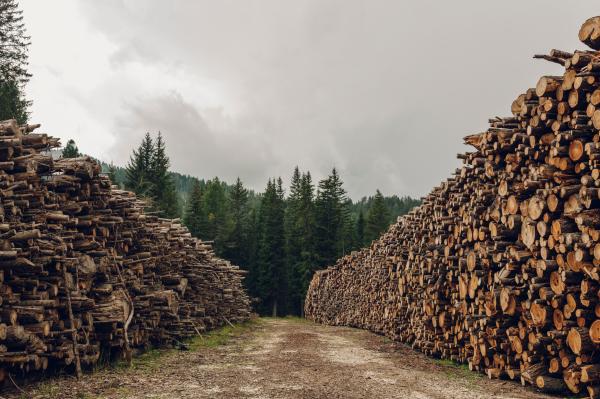Completed NRP 73 research project: Trade-offs in forests
13.09.2022
The transition to greater sustainability is placing heavier demands on forests
Forests are an important contributor to the sustainable economy – not only because they are a source of renewable resources, for example, but also because they provide offsetting services that enable other sectors to improve their poor sustainability. However, forests can only fulfil the wide range of roles expected of them if they are both properly managed and the area occupied by them is not allowed to decrease.
The transition to a more sustainable society is increasing the demands facing the forestry sector. A survey of forest owners and other players involved in forest management and forestry policy shows that while there is general support for regulations to stave off greater demands from other sectors, there is little appetite for increased regulation of the forestry sector itself.
In addition, land may be subject to competing use claims, especially in densely populated areas. An examination of forest clearance applications shows a slight increase in the percentage of land being cleared for projects associated with the sustainable economy in an extended sense (e.g. geothermal, wind and hydro power, non-motorised transport and recycling), especially in the Central Plateau and Alps. Although the amount of land in question is still small, the realisation that the sustainable economy requires land and is thus a source of competition for land is highly important. Experts confirm that conflicts with other sectors of the economy over land use now play an important role.
However, the growing demands of a sustainable economy also represent new sources of income for the forestry sector. These often stem from offsetting services provided to help other sectors of the economy achieve sustainability goals. One prime example is using trees and wood as carbon sinks. The survey of forest owners showed that the larger forest owners actually tended to be willing to restrict wood production in favour of offsetting services, provided they were able to market such services profitably.
The recommendations are that sustainable-economy projects should factor forest clearance and the impact of clearance into their sustainability assessments. It will be easier for the forestry sector to provide offsetting services if it does not have to forego too great a part of its wood harvest. Accordingly, the forestry sector should be preferably geared to wood carbon sinks. Nevertheless, there is still a certain potential for permanent carbon sinking in forests.
In general, however, a sustainable economy should not rely on buying in forestry-based services such as CO2 sinking as a way of offsetting environmental pollution and resource consumption indefinitely, since the ability of forests and the willingness of forest owners to provide such services both have limits.
- Schulz, Tobias; Lieberherr, Eva; Zabel, Astrid (2022). How national bioeconomy strategies address governance challenges arising from forest-related trade-offs.
- Troxler, David; Zabel, Astrid. (2021). Clearing forests to make way for a sustainable economy transition in Switzerland.
- Ohmura, Tamaki; Creutzburg, Leonard. (2021). Guarding the For(es)t: Sustainable economy conflicts and stakeholder preference of policy instruments.
- Creutzburg, Leonard; Lieberherr, Eva. (2021). To log or not to log? Actor preferences and networks in Swiss forest policy.
- Pelyukh, Oksana; Lavnyy, Vasyl; Paletto, Alessandro; Troxler, David. (2021). Stakeholder analysis in sustainable forest management: An application in the Yavoriv region (Ukraine).
- Wilkes-Allemann, Jerylee; Ludvig, Alice; Gobs, Stefan; Lieberherr, Eva; Hogl, Karl; Andy, Selter. (2022). Getting a grip on negotiation processes: Addressing trade-offs in mountain biking in Austria, Germany and Switzerland.
- Schulz, Tobias; Lieberherr, Eva & Zabel, Astrid (2022). How national bioeconomy strategies address governance challenges arising from forest-related trade-offs, Journal of Environmental Policy & Planning.
- Tobias, Schulz (2022). ATREE Q-methodology statement sorts on forest clearances offsetting in the forest.
- David Troxler (2022). Content coding of exemption approval decisions for forest clearances.
- Tamaki Ohmura (2022). ATREE forest owners survey about climate regulation services of forests.
- Creutzburg, Leonard (2022). ATREE Social Network Analysis survey on policy options regarding CO2 mitigation and sequestration in wood and forest.
- Schulz, Tobias (2022). ATREE forest owners survey about forest clearances offsetting in the forest.

Dr. Tobias Schulz
Swiss Federal Institute for Forest, Snow and Landscape Research WSL
+41 447 39 24 77
tobias.schulz@wsl.ch
